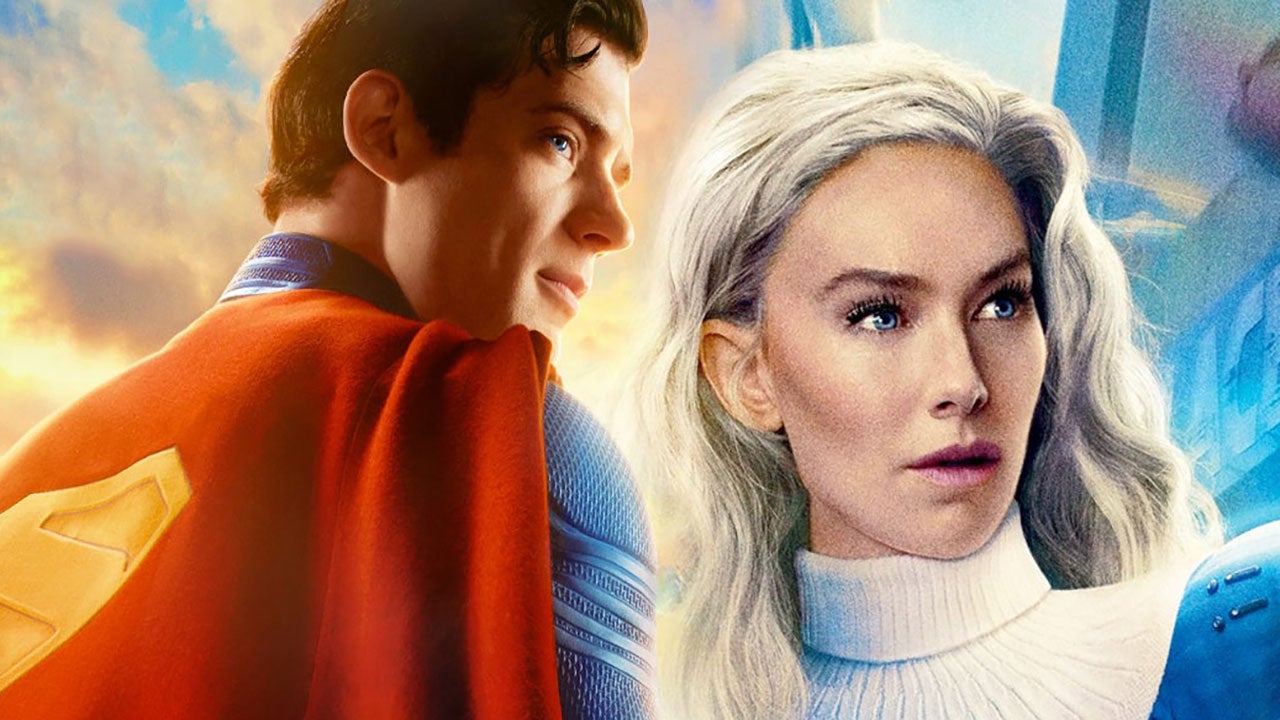
Comic book fans rejoice: 2025 was a good year for superhero movies. After a disastrous 2024 slate marred by misfires like Madame Web, Joker: Folie à Deux, and Kraven the Hunter, 2025 righted the ship with solid entries featuring Superman, the Fantastic Four, and the T̶h̶u̶n̶d̶e̶r̶b̶o̶l̶t̶s̶ New Avengers (we don’t have to talk about Captain America). But you might not know that going by fan chatter online, which has largely been dominated by vitriol towards the DCU’s Superman from angry Zack Snyder devotees, claims that The Fantastic Four: First Steps is a bomb and that the F4 franchise is doomed (!), and worry that the MCU and DCU will die off because of the nebulous but seemingly everpresent “superhero fatigue” phenomenon.
This trend of terminally online filmgoers trying to be box office hawks often fails to grasp the full scope of theatrical economics. The obscene expectation that franchise movies should easily clear the billion-dollar threshold lest they be deemed abject failures is a blight on the film industry, and this line of thought does not accurately reflect how movies are absorbed by popular culture. Let’s take a look at how adjusting our expectations for blockbuster performance would make the film discussion space much better for everyone.
The Billion-Dollar Benchmark
It can sometimes be hard to remember now, but the world of blockbuster filmmaking wasn’t always about massive superhero movies making all the money in the world. Superhero movies have been a popular part of the cultural landscape since at least 1978 with Richard Donner’s first Superman film, but the trend didn’t quite catch on in the moviegoing mainstream (meaning we could expect at least one big superhero movie each year) until the turn of the millennium, when the first Blade, X-Men, and Spider-Man films cemented the genre as one of Hollywood’s safest bets. Yet even in 2002 when Sam Raimi’s Spider-Man became the first movie in history to pull in over $100 million in a single weekend, the idea of a film generating over a billion dollars in theatrical revenue was nearly unheard of.
We say “nearly” because, like with most things, James Cameron did it first. 1997’s Titanic was the highest-grossing film of all time upon its original release, raking in an unprecedented $1.8 billion during its initial run. What had been seen by many as a one-time event that could never hope to be replicated would only become more common nearly a decade after Titanic’s debut. In fact, the third movie to ever pass the billion-dollar benchmark was Pirates of the Caribbean: Dead Man’s Chest in 2006 (Return of the King was the second for those keeping score at home). That’s not even 20 full years ago, but in only a couple of short decades, we now have 58 billion-dollar movies, meaning the expectation of what franchise films are capable of has shifted so drastically that how things used to work has been all but forgotten.
Even the Marvel Cinematic Universe helped rewrite history on this front when The Avengers became the first movie to ever cross $200 million domestically on opening weekend. That movie not only codified the cinematic universe boom, but also catapulted Marvel Studios into the stratosphere. Before then, Iron Man, Thor, and Captain America grossing $585 million, $449 million, and $370 million respectively in their first films was perfectly acceptable. But after Avengers managed $1.5 billion, the game changed. Now there was an understanding that the sky really was the limit for superhero films (even if they didn’t feature Batman), and future movies in the genre would have their “success” graded by both fans and executives on how close they got to the mythical one-billion mark, even if it was never in the cards for any given project.
It’s an irrational way of thinking about films, not just because it entirely skips over whether or not the movie is good, but also because it paints the perceptions of movies with more measured box office runs, Superman and The Fantastic Four: First Steps in particular.
Good Isn’t Bad
As of this writing, Superman is looking to tap out at the box office with just over $600 million worldwide, while The Fantastic Four: First Steps will cross $500 million. Both of these are respectable tallies, but you wouldn’t know that from how they’re discussed online. Much has been made of how the DCU’s Superman won’t pass the $670 million worldwide gross of 2013’s Man of Steel, leading some overzealous DCEU fans to claim that general audiences would prefer to see the “Snyderverse” continue over the new DCU. First Steps is far and away the most successful Fantastic Four movie both financially and with critics, but the fact that we finally received a good FF film has been overshadowed by “death of the MCU!” sentiment and posts declaring the movie a massive bomb even though that doesn’t make sense.
For one, the people actually involved in making these movies don’t seem to be broken up by their performance. In response to chatter that the $225 million budgeted Superman film would need to gross at least $650 million just to break even, director James Gunn responded by saying such a claim is “absolutely false.” Disney CEO Bob Iger defended First Steps on an earnings call, and seemed happy with the result as a starting point for the team, saying the movie “successfully launched this important franchise into the Marvel Cinematic Universe.” The $200 million price tag on First Steps versus a $500 million run means it’s not a runaway hit, but it’s not a bomb either. It’s perfectly fine, especially since Iger and co. clearly think that making a movie people actually like to get them invested in the characters was the real goal.
And if these movies really were such colossal failures, would they both currently have sequels in development? Gunn is already working on the next movie in the “Superman Saga,” and a solo film for Milly Alcock’s Supergirl is set to hit theaters next year. The MCU’s Fantastic Four are slated to appear in Avengers: Doomsday and Avengers: Secret Wars. These versions of these properties aren’t going anywhere anytime soon, so what is the barometer for “success” here, exactly? Some arbitrary number that we’ve decided is the goal post? Is it really so bad for movies to settle for “a lot of money” instead of “all the money?” Because frankly, superhero movies taking up less of the overall box office oxygen is actually a win for all of us.
Share the Wealth
Despite regular insistence from armchair box office analysts, “superhero fatigue” isn’t really a thing. Superhero fiction hasn’t seen a decline in popularity since the 1960s, and superhero films have been breaking the bank for decades. You’ll also notice that superhero movies are seemingly the only genre that gets talked about like this; did anyone make the case for “romantic comedy fatigue” in the 1990s? No, the only “fatigue” that has resulted in the decline of all the big superhero franchises is with bad movies. No matter what your thoughts are on any of the superhero films of the 2020s, there isn’t much arguing that we haven’t had some serious low points, such as The Flash, Ant-Man and the Wasp: Quantumania, and everything to do with the Sony Universe of Marvel Characters. After being burned so many times, no wonder not everyone is turning out for each new superhero movie that drops into cinemas.
The tsunami of superhero success stories ushered in by the rise of the MCU wasn’t going to last forever. The characters that Marvel Studios made its name on always had a shelf life, and DC betting the farm on Batman meeting Superman and the arrival of the Justice League couldn’t survive the movies not connecting with general audiences. Perhaps we’ve settled in for superhero movies going back to the old status quo, in that they’ll be popular, but also only one among many kinds of movies that do well in theaters. And that’s a good thing, because superhero and sci-fi movies no longer taking up so much real estate will allow a wider array of movies to succeed in the theatrical space, something we’re already seeing this year.
Weapons has collected over $200 million, which is an excellent figure for an original horror film. F1 cruised past $600 million mostly on old-school filmmaking and movie star charisma. Materialists climbed to nearly $100 million as a romantic drama focused on three characters. That’s not even getting into China’s home-grown animated blockbuster Ne Zha 2 being the biggest movie of the year, or KPop Demon Hunters taking the #1 spot at the domestic weekend box office for specialty sing-along screenings despite having been on Netflix for months. Audiences want to go to the movies, and they want to see more than just the latest superhero sagas. This is good – the theatrical ecosystem was never going to survive on just one kind of movie.
Superhero movies aren’t going anywhere. Superman, Fantastic Four, and all the rest will keep coming to cinemas. But a world where superhero films don’t gobble up all the profit and attention is one where smaller and more varied films get their chance in the limelight. It’s also one where we might finally get back to talking about movies for how good they are to watch instead of how good they are for a studio’s earnings.
Carlos Morales writes novels, articles, and Mass Effect essays. You can follow his fixations on Twitter.















